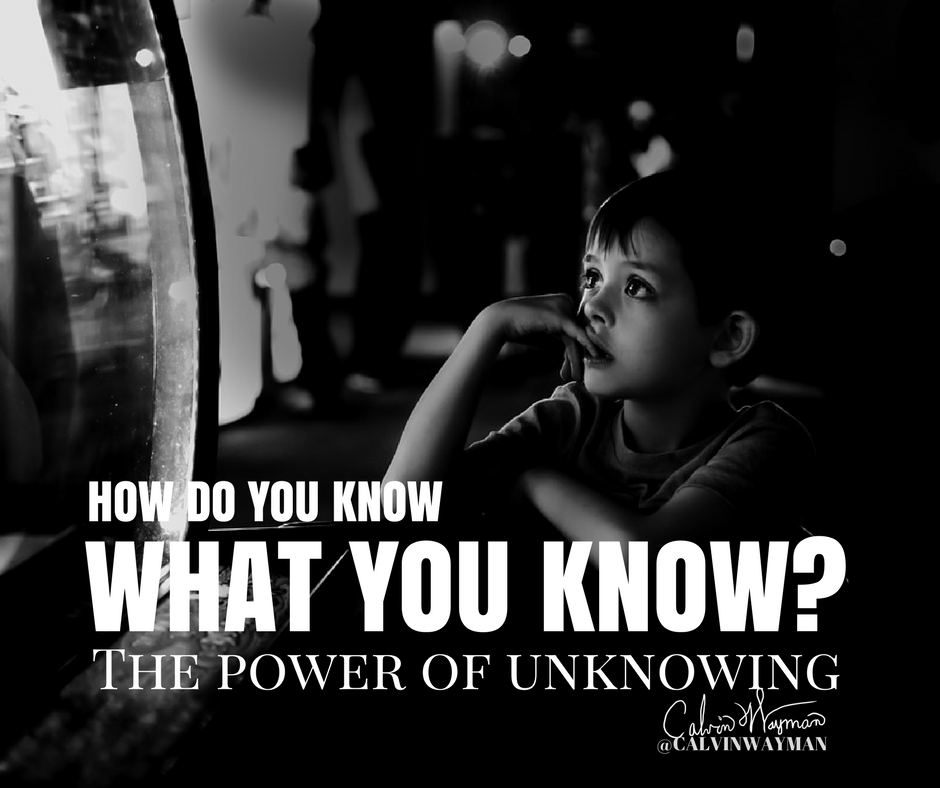One of the biggest questions that I often ponder is, “how do you know?” And how do you know if you actually know, or if it’s something you’ve invented in your own mind as truth. I don’t have the answer here, and I don’t plan on saying anything particularly profound. I’m just here, talking with myself, typing on this page.
One major human need that appears evident in my experience is this: the need to be right. Right about what exactly? Right about what you’ve always known to be right. Right about your view on the world. Right about what you know to be true. We validate this need by looking around us and finding things that look consistent with what we already know. We want what we thought was true to stay true. For some reason, when we find something that validates what we’ve already known to be true, it gives us some sense of relief. Some sense of order in this chaotic world.I guess, perhaps, it’s not so much about the need to be right as it is the need to be consistent with what we think we already know. After all, if it changed, what would happen with our entire reality?
But what if you really DO want to know the truth? Not just what you think is true, but actual truth? I’ve discovered that, to truly learn a thing, or even to study it, you have to first “unknow,” or “unlearn” what you think you already know about the thing. If you go into something with conclusions already in place, there is no room for something new to walk in, or any insight to show its face.
So you must be honest with yourself–when you say you’re looking for truth, are you really looking for “truth,” even if it tears down your entire foundation of what you “know?” Or, are you looking for things that are consistent with what you know to be true? What if you find something that is exactly the opposite of what you know to be true? Can you handle it? Do you have the maturity to do it?
I’m not saying this up on a pedestal by any means. In fact, I’m saying it to myself just as much as anyone. What can I really know? And more importantly, even if I can’t know for sure, am I mature enough to be okay with not knowing? Will it drive me mad? Am I such in desperate addiction to staying consistent with what I think I know, that if I don’t know something for too long, I’ll end up writing the story in a way that ends the unknowing and wraps it up in a nice little bow?
Many wise people over generations have said to “be as little children.” What does that mean? One way I interpret it is this: little children are learning. They’re TRULY learning. They don’t pretend to already know the answer. They have a sense of curiosity in the thing they’re learning. They’re totally open to the answer. Whatever it is.
Where did we “learn” to not have that curiosity? Where did we “learn” that we MUST have a solid foundation to function? What I’ve come to is this: one of the most precious things I can possess is being in the state of not knowing, and being completely “okay” at the same time. After all, that’s where we really find truth.
When you already “know” a thing, everything around it is concluded. What is there to learn? Any study of it is a waste of time. Why study something you already know? But to truly understand something deeper, you must suspend knowledge. Suspend judgement. Suspend conclusion. Instead, let yourself have fun with it. Be curious. Be open. After all, you cannot truly deeply understand a thing unless you let yourself be in a space of complete unknowing in the process. Let the unknowing guide you to the knowing.
SHARE YOUR THOUGHTS! It’d mean the world to me if you shared this article, or emailed me what you think. >> calvinwayman@gmail.com

